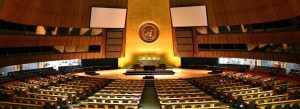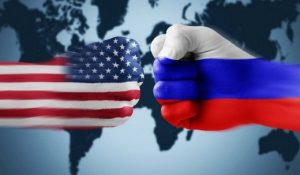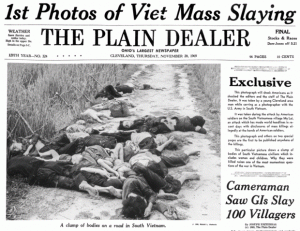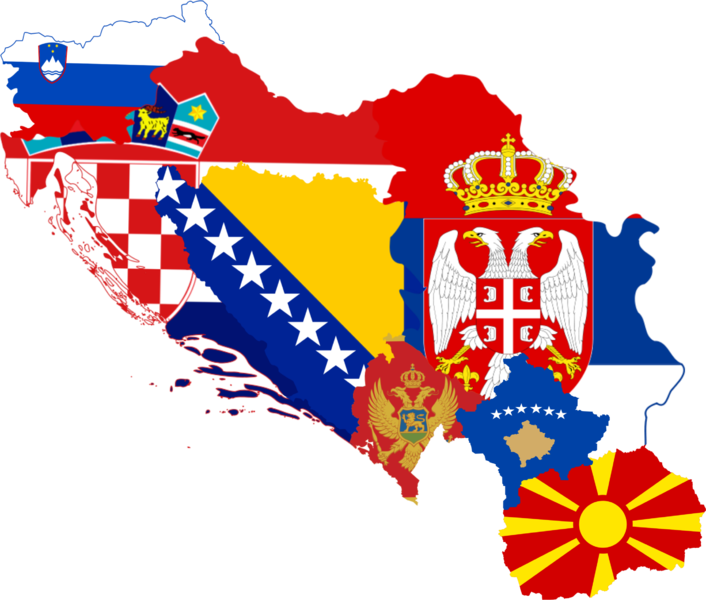
Views: 1154
Twenty years ago, on 24 March 1999, Operation Allied Force began – the NATO bombing of Yugoslavia that led to the country’s dismemberment – and the independent state of Kosovo was proclaimed. Yet these events were far from historically contingent, as some people claim. So who orchestrated the breakup of Yugoslavia and how?

These days, few remember that the Bulgarians were at the start of it all. Even the Bulgarians themselves don’t like to think about it.
In early March 1999, Bulgaria’s National Intelligence Service told Germany’s Federal Intelligence Service (BND) that it had information about a secret plan by the Yugoslav General Staff, codenamed Operation Horseshoe, to destroy/expel the entire Albanian population of Kosovo and Metohija by 1 April. The BND passed the information on to the German Federal Minister of Foreign Affairs, Joschka Fischer, who took it extremely seriously and immediately called for a military intervention in Yugoslavia, something that went against the pacifist position of the Green party from which he had been appointed foreign minister.
In reality, however, what the Bulgarians had was a map of Kosovo and Metohija that showed the positions of the 52nd Pristina Corps of the Third Army of the Yugoslav Military and police units. Visually, the position of these forces did actually resemble a horseshoe. No one stopped to think that the name of the document contained the word “potkova“, however, which is specific to the Bulgarian and Croatian languages and would be “potkovica” in Serbian. Since the main advocate for aggression against Yugoslavia was Germany, the Germans cited this plan as the primary reason for a bombing campaign, and the name of the “document” thereafter used the German word Hufeisenplan.

It was only some ten years later that MEP Nadezhda Neynsky (Mihaylova), Bulgaria’s foreign minister in 1999, clarified that the Bulgarian intelligence services had warned the Germans that the information in the “plan” had not been fully confirmed.
But NATO had been present in Kosovo long before the spring of 1999. A NATO-facilitated ceasefire in the region had been signed on 15 October 1998, under which Yugoslav troops returned to their places of permanent deployment. Monitoring of the ceasefire was entrusted to NATO. As part of Operation Eagle Eye, NATO diplomats and military experts were present in Kosovo to observe the situation. Thus, NATO was well aware of all the Yugoslav army’s positions in Kosovo and Metohija and did not need the Bulgarian intelligence services’ “confirmed information”.
Towards the end of 1998, the Kosovo Liberation Army (KLA), a Kosovo Albanian terrorist group, was on the verge of defeat, but the Albanians felt protected by NATO and continued fighting. The ceasefire collapsed and Albanian militants attacked police patrols and Serbian villages. By the beginning of 1999, the KLA had increased its terrorist activities and the situation in the region had become extremely difficult. The Yugoslav army was forced to resume its anti-terrorist operations knowing full well that NATO was not going to be happy.
In January 1999, a battle took place for the village of Račak, which the KLA had turned into a stronghold with trenches, underground bunkers and machine-gun nests. The exact number of Albanians killed in Račak is still not clear. The KLA and its supporters in Washington maintain that there were casualties among the local population. Yet a forensic examination showed that all of those killed had gunpowder traces on their hands, and the state of the civilian clothes they were wearing was not consistent with the wounds and injuries received.
After talking with KLA field commanders, however, American diplomat William Walker and his military advisor, British General John Drewienkiewicz, insisted that Serbian soldiers had massacred women and children in Račak. Even the Hague Tribunal was subsequently forced to exclude the “incident in Račak” from the list of charges against Slobodan Milošević due to a lack of evidence. In 1999, however, Walker and Drewienkiewicz were adamant.
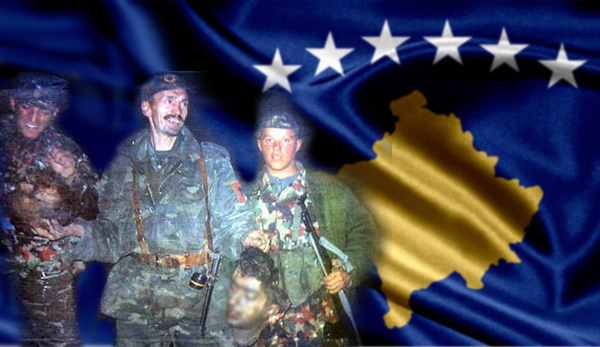
In the end, William Walker played a key role in shaping public opinion in English-speaking countries. He maintained to the last that he had seen the headless corpses of women, children and “older men, with gray hair” with his own eyes, even when it had been completely refuted, including by Western experts. In fact, it was William Walker’s vocal position that ultimately made NATO and especially the US favour military action against Yugoslavia, and Bulgaria’s “Potkova” plan showed up at just the right time.
In February 1999, talks were held at the ancient Château de Rambouillet on the outskirts of Paris between the Serbian government and Kosovo Albanians under the auspices of the Contact Group (NATO+Russia). They were a complete failure.
NATO representatives recognised Kosovo as an autonomous province within Serbia, but called for the following: all Yugoslav army units to withdraw from Kosovo; a force of 30,000 NATO troops to be deployed in Kosovo; an unhindered right of passage for NATO troops on Yugoslav territory; and immunity for NATO and its agents to Yugoslav law.
These were controversial conditions for the occupation of Yugoslavia and the complete loss of state sovereignty. Yugoslavia and Russia refused to sign the “agreement”.
On 23 March 1999, Belgrade agreed to recognise the political part of NATO’s proposals (the autonomy of Kosovo), but once again refused categorically to allow NATO troops access to its territory, as well as withdraw its own troops from Kosovo.
On 24 March 1999, NATO Secretary General Javier Solana ordered the commander of NATO troops in Europe, US General Wesley Clark, to begin the assault against Yugoslavia. That evening, the whole of Yugoslavia, including its key cities (Belgrade, Pristina, Podgorica, Novi Sad, Kragujevac, and Pančevo), was subjected to air strikes. Overnight, the American warship USS Gonzalez fired 18 Tomahawk cruise missiles at the city of Niš.
From the very beginning of the NATO aggression against Yugoslavia, there was a clear discrepancy between the stated objectives and the operation being carried out. Initially, NATO had estimated that it would take two to three days to “end the genocide of the Albanian population of Kosovo” by attacking Yugoslav military facilities south of the 44th parallel. Should the country’s leaders continue to resist, then the attacks on targets south of the 44th parallel would be expanded and last up to a week. If Belgrade still refused to make concessions, then the whole country would be targeted, including the capital.
In reality, however, the whole of Yugoslavia, including Belgrade, Novi Sad and Podgorica, was attacked just hours after the operation began. Instead of the original two to three days, the air strikes continued for two and a half months.
The plan categorically ruled out a ground operation. A direct confrontation with the Yugoslav army on the ground was viewed as unacceptable given the predicted losses and the possible escalation of the conflict into a prolonged war due to the nature of the Serbian and Montenegrin mentalities and the resistance of these peoples to external aggression.
Throughout April and May 1999, the air strikes were relentless. Every bridge over the Danube River was demolished, up to 80 per cent of Yugoslavia’s industrial potential was wiped out, and every television and telecommunication tower was purposefully and totally destroyed. At the same time, the first strike on the General Staff building in Belgrade only took place on 30 April (three officers were killed and around 40 injured). The Americans bombed the Chinese Embassy building in Belgrade, believing that it contained radar equipment the Chinese were using to share information with the Serbian Air Defence. Chinese diplomats and embassy staff were killed in the attack.

On 12 April, an American F-15 fighter jet attacked a railway bridge over the South Morava river in the Grdelica gorge, destroying a Belgrade–Athens passenger train. Dozens of people were killed, some of whom were reduced to unidentifiable body fragments. General Wesley Clark and NATO Secretary General Javier Solana tried to defend the pilot. The British attacked the city of Niš with cluster bombs – a prohibited weapon designed to destroy enemy personnel. The bombs hit a hospital and a busy market.
On 4 June 1999, Yugoslav President Slobodan Milošević agreed to a peace agreement. On 12 June, NATO forces moved into Kosovo from Macedonia. On 20 June, the 52nd Pristina Corps of the Yugoslav Army left Kosovo.
Several thousand missile and bombing raids were carried out over Yugoslavia during the NATO aggression. Several tens of thousands of bombs and missiles were dropped with a total weight of more than 22,000 tons. Hundreds of industrial plants, oil depots, power plants, and infrastructure including hundreds of road and railway bridges were destroyed or seriously damaged. A large number of historical and architectural sites and monuments were destroyed, along with hundreds of schools, universities, libraries, and more than 20 hospitals. Nearly 40,000 homes were completely destroyed or damaged.
Several thousand people died as a result of the bombing, including hundreds of children. The total material damage was $103 billion.
Why did a “humanitarian intervention” aimed at “preventing the genocide of Kosovo Albanians” result in the complete collapse and breakup of Yugoslavia?

The NATO aggression in 1999 was actually the final stage of the West’s solution to a crucial geopolitical task – the destruction of Yugoslavia. Following the fall of the Soviet bloc, it was not a viable option for Washington and its allies to have a country in Europe capable of pursuing independent policies and defending its own interests.
The cruel, cold-blooded and truly inhuman nature of the operation was meant to show everyone what awaits should they be brave enough to stand in the way of “Western democracy”. The political and military leaders of Yugoslavia and then of Serbia were among the first to experience hybrid warfare techniques and what is now commonly referred to as “fake news”.

Originally published on 2019-04-02
Source: Oriental Review
Origins of images: Facebook, Twitter, Wikimedia, Wikipedia, Flickr, Google, Imageinjection & Pinterest.
Read our Disclaimer/Legal Statement!
Donate to Support Us
We would like to ask you to consider a small donation to help our team keep working. We accept no advertising and rely only on you, our readers, to keep us digging the truth on history, global politics and international relations.




